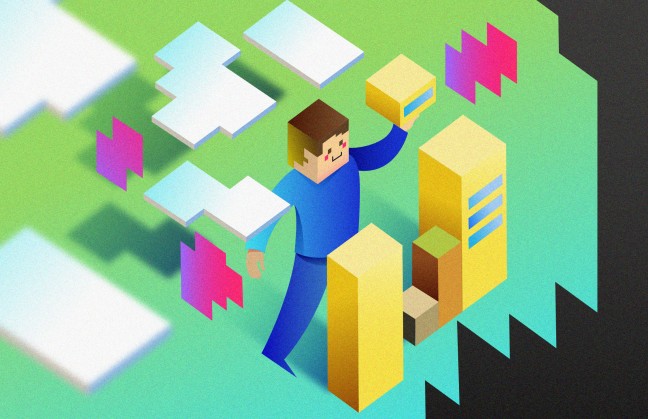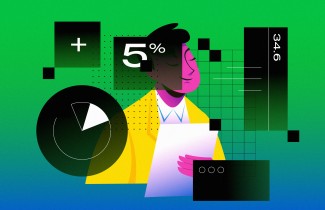Video Games and Learning: Unlocking New Business Skills
Using video games such as Minecraft and Overcooked can impact the development of skills like critical thinking, negotiation, and problem-solving

Video games offer an immersive, interactive, and playful experience that connects with millions of people worldwide. Their popularity has significantly grown in recent decades, expanding beyond entertainment into fields such as military training and education. The ability of video games to enhance engagement with learning makes them a strategic tool for addressing educational challenges and fostering skill development in organizations.
More and more educational institutions are incorporating gamification—the strategy of applying game techniques—to improve learning and teaching processes, connect students with the real world, and develop key competencies such as critical thinking and creativity. In this context, business schools need to implement innovative teaching strategies that challenge traditional education to generate far-reaching impacts.
At EGADE Business School, several recent learning experiences incorporated the use of video games, particularly Minecraft and Overcooked. The research aims to confirm that video games allow students to develop skills. Some of the findings were published in the chapter "Minecraft, herramienta de aprendizaje basado en juegos: análisis del impacto en el desarrollo del pensamiento crítico y creativo en la resolución de retos objetivos de desarrollo sostenible (ODS)” (Horizontes en el aprendizaje vinculado con el desarrollo sostenible: Nuevas vías en la era digital, 2024).
Minecraft: Building Critical and Creative Thinking
The educational platform Minecraft—a kind of digital LEGO that uses three-dimensional blocks to build structures—is considered a tool for developing critical and creative thinking, as it stimulates students’ divergent thinking. This type of thinking broadens the range of possible solutions to problems, encouraging students to experiment and generate ideas that can be transformed into non-traditional solutions.
The first experience using Minecraft was the Impact Challenge by OXXO, where eight student teams creatively solved a challenge based on the United Nations’ 2030 Agenda Sustainable Development Goals. Minecraft allowed them to develop a prototype of the solution and present a pitch. In the second experience, the game helped students in the Entrepreneurial Mindset course rethink how to propose solutions to societal problems by designing an entrepreneurship project.
Beyond using video games as an educational tool, these academic experiences incorporated other didactic strategies that enable the transversal development of key competencies in the future. In both cases, Minecraft was combined with other andragogical techniques such as challenge-based learning and design thinking. Integrating multiple active learning experiences in the classroom helps capture students’ attention and motivation while creating collaborative learning environments. In fact, students highlighted improvements in teamwork and integration, as well as in the development of critical thinking and creativity—key skills for the workplace.
Overcooked: The Recipe for Developing Negotiation Skills
Another experience involved an activity using Overcooked, a collaborative video game where participants must prepare recipes in a kitchen. The exercise is used to create a space for collaboration and teamwork, where someone leads and others execute, while participants must constantly manage time, coordinate actions, and make strategic decisions under pressure. This has a positive impact on critically analyzing team roles in negotiation processes, assigning roles based on each team member’s individual skills.
Once the team is formed and roles are established, the game’s objective is to deliver as many dishes as possible in the shortest amount of time. This requires coordinated action, a significant flow of information among participants, strong coordination, and good leadership to achieve the goal. Through this immersion in a gamified environment, students developed negotiation skills and strengthened key competencies such as leadership, teamwork, effective communication, and conflict resolution. Overcooked not only turned negotiation into an immersive and fun experience but also reinforced learning in the classroom.
However, implementing these activities presents several challenges, including ensuring that instructors understand their use and benefits to maximize their potential in an educational setting. Training and access to appropriate tools are essential for professors to integrate these strategies effectively, aligning them with pedagogical objectives and fostering meaningful learning. This approach will not only enable more rigorous and enhanced experiences but also strengthen educational innovation and optimize the impact of these methodologies on students' skill development.
At EGADE Business School, the Educational Innovation area plays a key role in implementing these strategies. Through continuous support, it ensures that each learning experience is meaningful, aligning the use of innovative tools with a structured learning approach. As education evolves, the use of video games not only makes learning more dynamic and engaging but also prepares students to face real-world challenges with creativity and collaboration.
The authors are director of Educational Innovation at EGADE Business School (Eloísa Pérez), professor in the Strategy and Leadership Department at EGADE Business School (Luciana Manfredi) and professor in the Entrepreneurship and Technological Innovation Department at EGADE Business School (Jairo Orozco).





